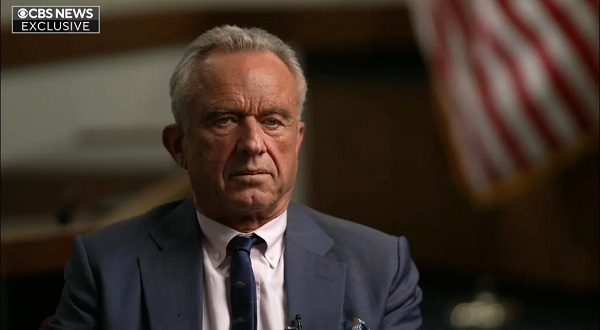Business
Report: New York population could shrink by millions in coming years

From The Center Square
New York’s population could decline by more than 2 million people over the next 25 years as fewer people are born in the state and more people move out, according to a new report.
The study by Cornell University’s Jeb E. Brooks School of Public Policy’s Program on Applied Demographics projects that New York faces a significant population decline due to low fertility rates and aging that has not been offset by new arrivals.
“The projections confirm what we have been seeing for some time, which is that if the demographic trends in the state do not change, its population will continue to decline,” Jan Vink, lead analyst for the study, said in a statement. “Conservative estimates suggest a population decrease of 1 million by 2050, but we think an even greater decline is more likely.”
Researchers found that the number of New Yorkers ages 0-17 is projected to drop between 10% and 25% over the next 25 years amid a decline in the number of births. Meanwhile, the state’s population is projected to decline from the current 19.7 million to about 17 million by 2050, mostly through outmigration, the researchers said.
The study, which was partially funded by the state of New York, comes as Albany leaders have become increasingly concerned about outmigration from the state and its potential impact on the economy. Bills seeking to improve the state’s business sector and boost its competitiveness are expected to be filed in the upcoming legislative session.
“Policymakers want to know to what extent the crystal ball of demography can project the future of New York state’s population so they can plan for the future,” Cornell Population Center Director Matt Hall said.
Experts say New York’s outmigration has less to do with politics than it does with a lack of housing, prevailing wages and access to employment.
However, federal data shows that the population decline has major implications for the states, as well as revenue and tax collections. New York lost more than $14.1 billion in state-adjusted gross income between 2021 and 2022 as residents fled to New Jersey, Florida and other low-tax states, according to the latest Internal Revenue Service data.
Democratic Gov. Kathy Hochul has blamed a lack of housing as the primary reason New Yorkers are fleeing the state, making the case for expanding housing stock and making existing homes more affordable.
But Republicans have long argued that New York’s outmigration is being driven largely by the state’s highest-in-the-nation tax burden, a business sector struggling under excessive regulations and rising labor costs.
Business
Musk Slashes DOGE Savings Forecast By 85%


From the Daily Caller News Foundation
By Thomas English
Elon Musk announced Thursday that the Department of Government Efficiency (DOGE) is now targeting $150 billion in federal savings for fiscal year 2026 — dramatically scaling back earlier claims of slashing as much as $2 trillion.
Musk initially projected DOGE would deliver $2 trillion in savings by targeting government waste, fraud and abuse. That figure was halved to $1 trillion earlier this year, but Musk walked it back again at Thursday’s Cabinet meeting, saying the revised $150 billion projection will “result in better services for the American people” and ensure federal spending “in a way that is sensible and fair and good.”
“I’m excited to announce we anticipate saving in FY ’26 from a reduction of waste and fraud a reduction of $150 billion dollars,” Musk said. “And some of it is just absurd, like, people getting unemployment insurance who haven’t been born yet. I mean, I think anyone can appreciate — I mean, come on, that’s just crazy.”
The announcement marks the latest in a string of revised projections from Musk, who has become the face of President Donald Trump’s aggressive federal efficiency agenda.
“Your people are fantastic,” the president responded. “In fact, hopefully they’ll stay around for the long haul. We’d like to keep as many as we can. They’re great — smart, sharp, finding things that nobody would have thought of.”
Musk originally floated the $2 trillion figure during campaign appearances last fall.
“I think we could do at least $2 trillion,” Musk said at the Madison Square Garden campaign rally in November. “At the end of the day, you’re being taxed — all government spending is taxation … Your money is being wasted, and the Department of Government Efficiency is going to fix that.”
By January, he softened expectations to a “really quite achievable” $1 trillion target before downsizing that figure again this week.
“Our goal is to reduce the deficit by a trillion dollars,” Musk told Fox News’ Bret Baier “Looked at in total federal spending, to drop the federal spending from $7 trillion to $6 trillion by eliminating waste, fraud and abuse … Which seems really quite achievable.”
DOGE’s website, which tracks cost-saving initiatives and contract cancellations, currently calculates total federal savings at $150 billion.
2025 Federal Election
Taxpayers urge federal party leaders to drop home sale reporting to CRA

Party leaders must clarify position on home equity tax
The Canadian Taxpayers Federation is calling on all party leaders to prove they’re against home equity taxes by pledging to immediately remove the Canada Revenue Agency reporting requirement on the sale of primary residences.
“Canadians rely on the sale of their homes to pay for their golden years,” said Carson Binda, CTF B.C. Director. “After the government spent hundreds of thousands of dollars flirting with home taxes, taxpayers need party leaders to prove they won’t tax our homes by removing the CRA reporting requirement.”
Right now, the profit you make from selling your home is exempt from the capital gains tax. However, in 2016, the federal government mandated that Canadians report the sale of their homes to the CRA, even though it’s tax exempt.
The Canada Mortgage and Housing Corporation also spent at least $450,000 to study and influence public opinion in favour of home equity taxes. The report recommended a home equity tax targeting the “housing wealth windfalls gained by many homeowners while they sleep and watch TV.”
“A home equity tax would hurt seniors saving for their golden years and make homes more expensive for younger generations,” Binda said. “If the federal government isn’t planning on imposing a home equity tax, then Canadians shouldn’t be forced to report the sale of their home to the CRA.”
-

 2025 Federal Election2 days ago
2025 Federal Election2 days agoResearchers Link China’s Intelligence and Elite Influence Arms to B.C. Government, Liberal Party, and Trudeau-Appointed Senator
-

 COVID-192 days ago
COVID-192 days agoFauci, top COVID officials have criminal referral requests filed against them in 7 states
-

 Business2 days ago
Business2 days agoTimeline: Panama Canal Politics, Policy, and Tensions
-

 2025 Federal Election2 days ago
2025 Federal Election2 days agoPoilievre Announces Plan To Cut Taxes By $100,000 Per Home
-

 Health2 days ago
Health2 days agoRed Deer Hospital Lottery – Previous Supporter Draw Deadline!
-

 Health2 days ago
Health2 days agoRFK Jr. Shuts Down Measles Scare in His First Network Interview as HHS Secretary
-

 International2 days ago
International2 days agoTrump White House will ignore reporter emails that include ‘preferred pronouns’ in signature
-

 Bjorn Lomborg2 days ago
Bjorn Lomborg2 days agoThe stupidity of Net Zero | Bjorn Lomborg on how climate alarmism leads to economic crisis






